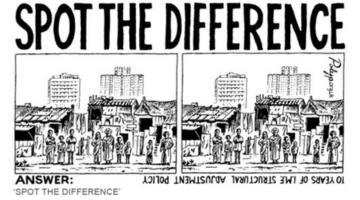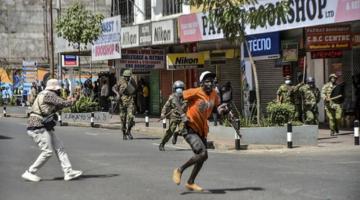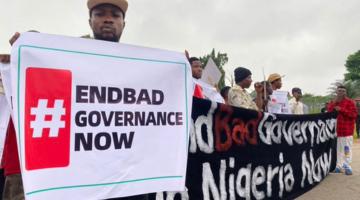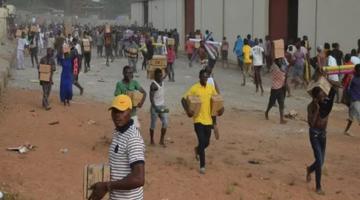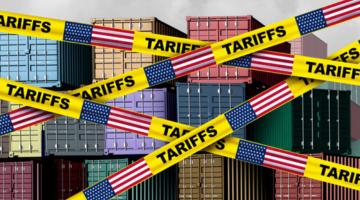Related Stories
Nicholas Mwangi
Gambians from all walks of life – led by the youth-driven GALA movement mobilized across the country on July 23 in an anti-corruption protest a
Abayomi Azikiwe
At least 16 were killed in protests marking the first anniversary of mass actions against neo-liberal tax hikes and continuing state repression
Dylan Sullivan
, Jason Hickel
Presenting new research, Dylan Sullivan and Jason Hickel mount a devastating critique of the impact of structural adjustment in Africa in the 1
Pavan Kulkarni
After dozens died in stampedes, Nigerian President Bola Tinubu remarked, “We should just get on with it.” Tinubu’s IMF-prescribed policies have
Joel Mukisa
Reflecting on the mass protests that recently shook Kenyan society from top to bottom, Joel Mukisa argues that we must go much further than a c
Salvador Ousmane
At the beginning of August this year, tens of thousands of Nigerians rose up to denounce the government in a movement that was organised under
Ann Garrison, BAR Contributing Editor
Rwanda’s economic miracle is a lie.
Black Alliance For Peace
The current uprising in Kenya is a result of the imperialist economic policy enabled and maintained by its comprador leader, William Ruto.
Pavan Kulkarni
President Bola Tinubu’s lifting of fuel subsidies and liberalization of currency trade has pleased the IMF and increased hunger in Africa’s mos
Ann Garrison, BAR Contributing Editor
In 1987, at the Organization for African Unity, Thomas Sankara said, "Debt is a cleverly managed reconquest of Africa." Ethiopia might act
More Stories
- Margaret Kimberley, BAR Executive Editor and Senior ColumnistWhile Trump dedicates himself to making every conservative fantasy come true, millions wonder who will save them from the onslaught of the right wing fever dream. The answer is no one but ourselves.…
- Editors, The Black Agenda Review“The question now is: What are we going to do about this murderous fascism?”
- Ann Garrison, BAR Contributing EditorThis year’s Victoire Prize went to ICTR lawyers David Jacobs and Peter Erlinder and Canadian journalist Jooneed Khan.
- Jon JeterThroughout history, trade restrictions have reshaped economies for good or for ill. As Trump increases tariffs across industries, it is clear that this move will not revitalize the economy as he…
- Roberto Sirvent, BAR Book Forum EditorThis week’s featured author is Judith Weisenfeld. Weisenfeld is Agate Brown and George L. Collord Professor in the Department of Religion at Princeton University. Her book is Black Religion in the…



